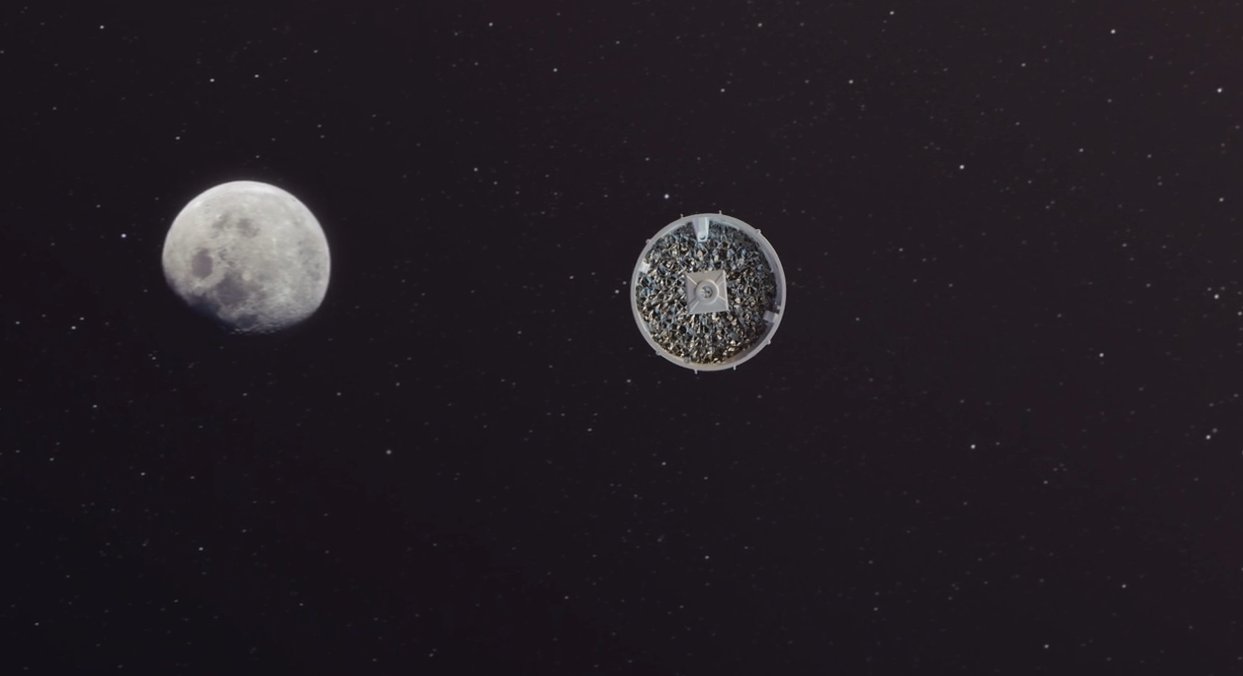Rocket Lab Aims for the Moon and Beyond with New Photon Satellite Platform

WASHINGTON — Rocket Lab is shooting for the moon. Literally.
The small-satellite launch startup announced today (Oct. 21) that its new Photon satellite platform will be able to fly small spacecraft on deep-space missions to the moon and beyond. The plan will combine Rocket Lab's workhorse Electron rocket with Photon, a vehicle designed to provide end-to-end spaceflight services for customer payloads.
The move, Rocket Lab says, will allow the company to go beyond low Earth orbit (LEO) and bring "medium, geostationary, and lunar orbiters within reach for small satellites," according to a statement. To reach the moon, the company will add what it calls a "bulk maneuver stage" to the Electron-Photon combo to allow lunar flyby and moon-orbiting missions.
Video: Watch Rocket Lab Launch Its Highest Flight Ever!
More: Rocket Lab Gearing Up for 1st Launches from US Soil in Early 2020
NASA plans to return astronauts to the moon by 2024, and Rocket Lab sees small satellites playing a major role in that effort.
"Small satellites will play a crucial role in science and exploration, as well as providing communications and navigation infrastructure to support returning humans to the moon," Rocket Lab CEO Peter Beck said in the statement. "In the same way we opened access to LEO for smallsats, Rocket Lab is poised to become the dedicated ride to the Moon and beyond for small satellites."
Rocket Lab unveiled the Photon satellite platform in April at the 35th Space Symposium in Colorado Springs, Colorado. The vehicle is an evolution of the company's "kick stage," a single-engine craft used to deliver payloads into their final circular orbits around Earth, and is expected carry payloads of up to 375 lbs. (170 kilograms) for up to five years, Rocket Lab has said.
Breaking space news, the latest updates on rocket launches, skywatching events and more!
The first Photon mission could fly by late 2020, company representatives said today.
The company's 57-foot-tall (17 meters) Electron booster made its launch debut in 2017 and is designed to launch payloads of up to 500 lbs. (227 kg) into low Earth orbit for $5 million per flight. To date, the company has launched nine missions, including its highest mission yet, which lifted off last week.
That mission, called "As The Crow Flies," lifted off from Rocket Lab's Launch Site 1 on New Zealand's Mahia Peninsula on Oct. 17 local time. It delivered a small satellite called Palisade into an orbit 620 miles (1,000 kilometers) above Earth for customer Astro Digital.
Meanwhile, Rocket Lab is busy building its second launchpad, called Launch Site 2, at NASA's Wallops Flight Facility on Wallops Island, Virginia. The company is also aims to eventually reuse the first stage of its Electron boosters. To do that, it is developing a method to have the booster parachute back to Earth and catch it in mid-air with a helicopter.
- What's Next for Rocket Lab? A Q&A with CEO Peter Beck
- Rocket Lab Aims to Win Cubesat-Launching Race
- It's Business Time! Rocket Lab Lofts 6 Satellites on 1st Commercial Launch
Email Tariq Malik at tmalik@space.com or follow him @tariqjmalik. Follow us on Twitter @Spacedotcom and on Facebook.

Tariq is the award-winning Editor-in-Chief of Space.com and joined the team in 2001. He covers human spaceflight, as well as skywatching and entertainment. He became Space.com's Editor-in-Chief in 2019. Before joining Space.com, Tariq was a staff reporter for The Los Angeles Times covering education and city beats in La Habra, Fullerton and Huntington Beach. He's a recipient of the 2022 Harry Kolcum Award for excellence in space reporting and the 2025 Space Pioneer Award from the National Space Society. He is an Eagle Scout and Space Camp alum with journalism degrees from the USC and NYU. You can find Tariq at Space.com and as the co-host to the This Week In Space podcast on the TWiT network. To see his latest project, you can follow Tariq on Twitter @tariqjmalik.
